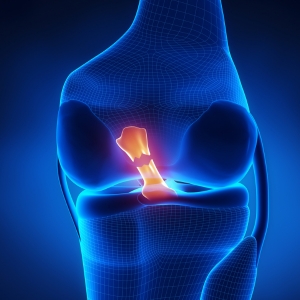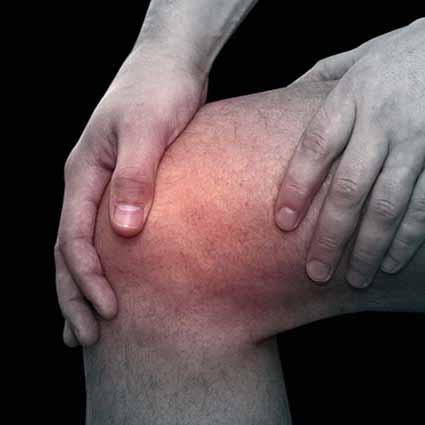Neck pain can come in many forms, from mild discomfort to severe and chronic pain. It is estimated that up to 65% of people have experienced neck pain at some point in their lives, making it one of the most common types of musculoskeletal pain. Most cases are due to poor posture, minor injuries or strains from overuse.

Anatomy of the neck
The neck has seven bones that form the cervical vertebrae, these are referred to as C1, C2, C3, C4, C5, C6 and C7.
Between the bone segments sit the discs, which are fibrous tissues that act as shock absorbers. These discs allow the neck to move. When the discs change shape (a herniated disc) or move out of position (a slipped disc), they may compress the nerves branching from the spinal cord and cause pain, numbness or weakness in the arms and neck muscles, as well as tingling sensations known as radiculopathy.

Signs and symptoms
Depending on the cause and the of severity of damage, neck pain may trigger other symptoms:
- Tension, pain and / or stiffness around the neck and upper back
- Radiated pain, or a tingling feeling, that is felt in the arm or hand
- Numbness or weakness in the neck, arms or shoulders
- Dizziness or lightheadednesslight headedness, nausea or headache
Acute neck pain
Wry neck - Muscle strain or soft tissue injuries can lead to a wry neck, which triggers neck pain immediately. A wry neck will restrict the normal range of head motion. Such symptoms usually present themselves during sleep or a slight turn of the head, or after an injury. A wry neck can also be related to other medical conditions such as a herniated disc or a slipped disc.
Car accidents - A traumatic force, such as that created in a car accident, may strain the nerves, ligaments and muscles in the cervical area, causing pain.
Chronic neck pain
Disc degeneration - Accumulated wear and tear on the disc may lead to neck pain. Degeneration of the disc is age-related, and is worsened by poor posture and repetitive movement of the neck.
Cervical spondylosis
The wear and tear of soft tissues, the vertebrae or discs in the neck, leading to the gradual narrowing of the disc space, and affecting the shape of the vertebrae. Bone spurs may form along the edges of the vertebrae and impinge on nerves or the spinal cord, causing pain.
Herniated disc in the neck
Disc degeneration, or an injury, can cause the discs to be pushed out or ruptured, irritating the nerves and causing pain. Depending on the severity, the condition can lead to sensory and motor function impairment.

Cervicogenic headache
Neck damage may lead to cervicogenic headache, a referred pain which stems from the neck region. This type of headache usually affects one side of the head, with pain starting from the back of the neck and traveling to the forehead and/or temporal area. People sometimes experience both neck pain and a headache, especially after a car accident or other types of physical trauma, or from developing arthritis.
How to alleviate neck pain?
People suffering from acute and chronic neck pain should be examined by a doctor as soon as possible. For mild pain, rest and applying an ice pack will usually be enough to manage the pain and stabilize the neck. In addition, patients can consult physiotherapists, who will evaluate the body posture and joint movement, and give appropriate advice.
Neck support and rest
- Lying down will decrease the pressure to the neck, thus reducing muscle spasm, and promoting healing.
- Avoid lifting heavy objects or doing any physically demanding activities.The pillow and mattress should be of appropriate thickness and softness for adequate support to the spine. Good mattresses and pillows should maintain a normal spinal curve when lying on the back or side. In the early stage of acute pain, a neck collar may be recommended to provide support and to stabilize the neck.
Ice or heat
- An ice pack is usually applied for acute injuries like neck sprain or whiplash. Whereas, a heat pack is applied to alleviate neck pain caused by muscle spasms.
Work ergonomics modification
- Modification of the workstation is necessary if poor posture is the cause of the neck pain. Adjustments should be made to avoid overstraining certain muscle groups.
- Any lifting or physical exertion should be avoided.

When to seek medical help?
If neck pain persists for more than a few days and causes disruption to sleep, it is recommended to consult with a doctor or physiotherapist. Anyone who has these signs or symptoms should seek medical advice:
- Constant numbness and increasing weakness in arms or hands
- Constant headache with increasing severity
- Fever, chills, sweats as this may indicate an underlying medical condition
Treatment options
Medication
Medications such as anti-inflammatory drugs may be prescribed to relieve neck pain related to inflammation. Other medications, for example, muscle relaxants are used to settle down muscle spasm, this is useful in relieving pain in the acute stage.
Physiotherapy
You may be referred for physiotherapy treatment. The physiotherapist will assess the condition and provide appropriate remedies including:
- Postural correction
- Manual therapy - joint mobilization and soft tissue release
- Exercise therapy - stretching, deep neck muscle and shoulder control exercises
- Electrotherapy - ultrasound, Interferential therapy for soft tissue healing and pain control
- Advice on work ergonomics
- Acupuncture

Surgical treatments
If the neck pain is severe or persists despite conservative treatments, the doctor may advise further diagnostic examinations, such as an MRI scan. If the condition does not improve after medication and physiotherapy, surgical treatments may be considered to provide relief. Most procedures are minimally invasive and may be used to remove the intruded part of the herniated disc, to replace a disc or fuse discs to stabilize the neck joints.
Preventing neck pain
It's important to take steps to help prevent neck pain from occurring in the first place by practicing good posture while sitting or standing, taking frequent breaks when working long hours at a computer, and avoiding activities that involve risk of neck strain or overextension. Taking the right preventive measures can help reduce neck pain and avoid making it worse in the future.
Call us at 2537 7407 to arrange an appointment with our medical professionals, or simply click the below link to book online:
References: UpToDate website
Articles on this website are informative only and not intended to be a substitute for professional medical advice, diagnosis or treatment. They should not be relied upon for specific medical advice.

Information provided by:
Physiotherapy Department, Matilda International Hospital











